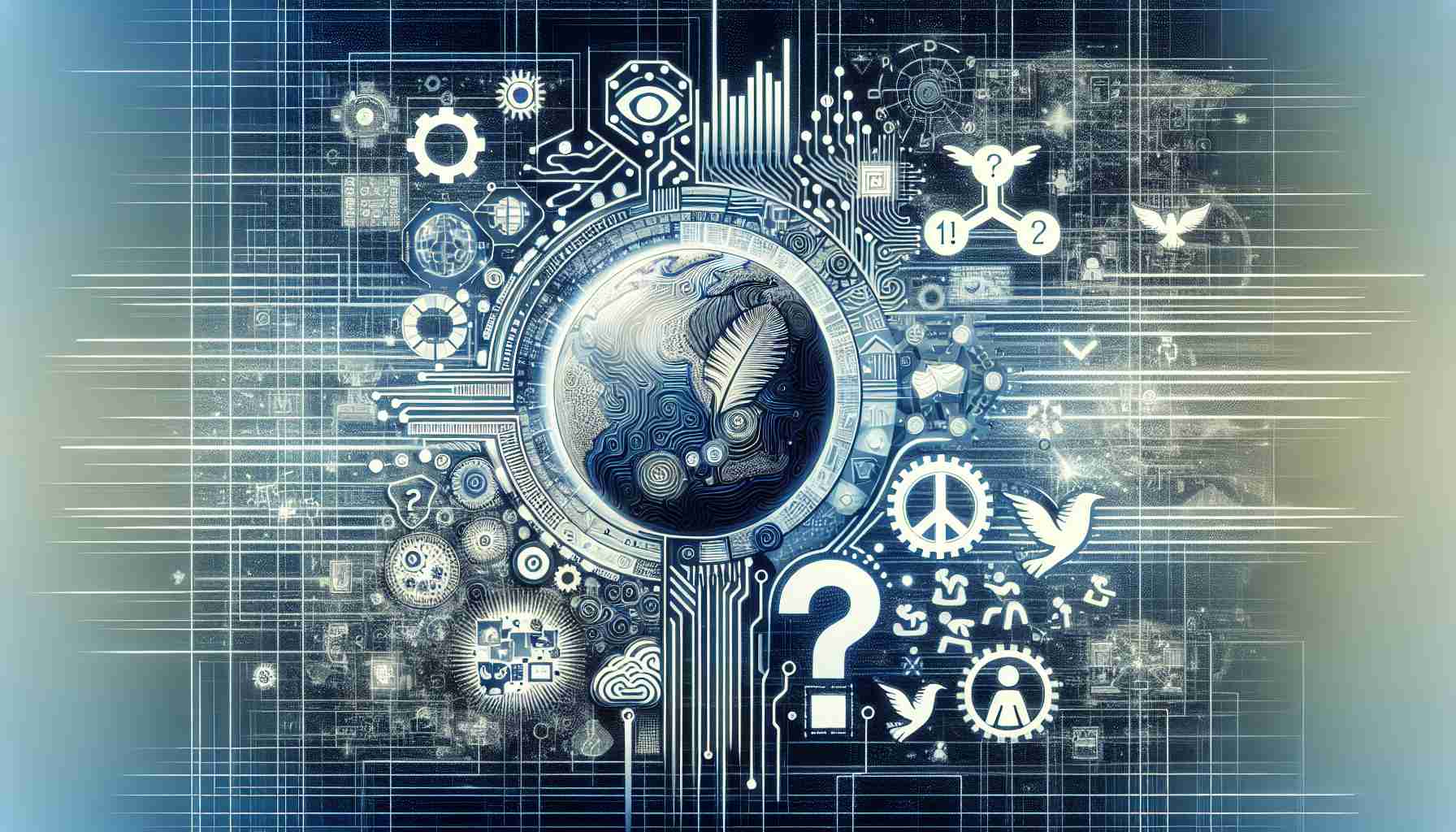Artificial intelligence (AI) has emerged as a powerful tool with the potential to revolutionize various aspects of our lives. From enhancing efficiency in industries to improving healthcare outcomes, the possibilities seem endless. Amidst this transformative landscape, the former Uzbekistan Foreign Minister, Vladimir Norov, recently spoke at the XI Global Baku Forum, shedding light on the immense potential of AI in bolstering international security.
Norov expressed his belief that AI could act as a catalyst for increased protection and facilitate international dialogue on matters of security. The ability of AI to decipher complex patterns and analyze vast sets of data provides invaluable insights, aiding authorities in identifying potential threats and developing effective countermeasures.
However, he also cautioned against the potential drawbacks of increased reliance on AI. One significant concern lies in the shortage of cybersecurity specialists. Norov underlined the urgent need to address this shortage, emphasizing that the demand for skilled professionals in this field has been steadily rising since 2021. Without a robust cybersecurity workforce, the vulnerability to cyber threats may escalate, undermining the very security AI aims to enhance.
The XI Global Baku Forum serves as a crucial platform for addressing global challenges and exploring opportunities. Bringing together delegates from various countries and international organizations, the forum delves into critical issues such as cybersecurity, climate change, and geopolitical stability. These discussions are vital in shaping policies, fostering collaboration, and ensuring a safer future in an increasingly interconnected world.
As AI continues to permeate different spheres of society, it is essential to remain cognizant of the potential risks and benefits it brings. By investing in cybersecurity education and nurturing a skilled workforce, countries can mitigate the vulnerabilities associated with AI and harness its power to enhance international security.
Frequently Asked Questions (FAQ)
-
What is artificial intelligence (AI)?
Artificial intelligence refers to the development of computer systems capable of performing tasks that typically require human intelligence. These tasks may include understanding natural language, recognizing patterns, solving problems, and learning from experience. -
How can AI enhance international security?
AI can enhance international security by analyzing vast amounts of data, identifying potential threats, and aiding in the development of effective countermeasures. It can provide valuable insights and facilitate international dialogue on security matters. -
What are the challenges associated with AI in security?
One significant challenge is the shortage of cybersecurity specialists. The increasing reliance on AI underscores the need for skilled professionals to combat cyber threats effectively and ensure the security of AI systems. -
What is the XI Global Baku Forum?
The XI Global Baku Forum is a prominent platform that brings together delegates from various countries and international organizations to address global challenges and explore opportunities. It focuses on crucial issues such as cybersecurity, climate change, and geopolitical stability. -
How can countries mitigate the risks associated with AI?
Countries can mitigate the risks associated with AI by prioritizing cybersecurity education, investing in the training of cybersecurity specialists, and fostering international collaboration in developing robust cybersecurity frameworks.
Sources:
– For more information on the XI Global Baku Forum, visit https://www.globalbakuforum.az.
– To learn about the potential of artificial intelligence, explore https://www.ibm.com/watson/what-is-ai.
Artificial intelligence (AI) is a rapidly growing industry with vast potential to transform various sectors. The market for AI technology is projected to expand at a remarkable rate in the coming years. According to a report by Grand View Research, the global AI market size was valued at $39.9 billion in 2019 and is expected to reach $733.7 billion by 2027. This growth can be attributed to the increasing adoption of AI across industries, including healthcare, finance, retail, and cybersecurity.
In terms of market forecasts, the healthcare industry is expected to witness significant advancements through the integration of AI technology. AI-powered algorithms can analyze medical data and provide accurate diagnoses, assist in drug discovery, and even predict diseases. The global AI in healthcare market is projected to reach $51.3 billion by 2027, according to a report by Fortune Business Insights.
However, along with the immense potential, the industry also faces challenges and issues. One prominent concern is the ethical implications associated with AI. As AI systems become more sophisticated and autonomous, questions arise regarding their decision-making processes and accountability. Transparency and ethical guidelines are crucial to ensure that AI technology is developed and utilized responsibly.
Another major issue is data privacy and security. As AI relies heavily on data, the protection of sensitive information becomes paramount. Ensuring robust cybersecurity measures and addressing potential vulnerabilities in AI systems are vital to prevent unauthorized access and misuse of data.
Additionally, the shortage of skilled professionals in the field of cybersecurity presents a significant challenge. As the demand for cybersecurity specialists rises, organizations and governments need to invest in cybersecurity education and training programs. By nurturing a skilled workforce, countries can effectively combat cyber threats and safeguard AI systems.
To stay informed about the latest developments and insights in the AI industry, you can visit reputable sources such as Global Baku Forum and IBM’s What is AI. These platforms provide valuable information on AI applications, market trends, and the impact of AI on various sectors.
The source of the article is from the blog enp.gr

